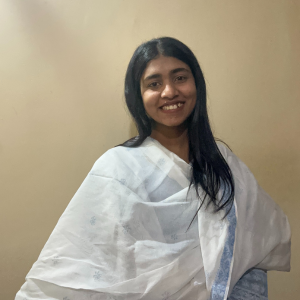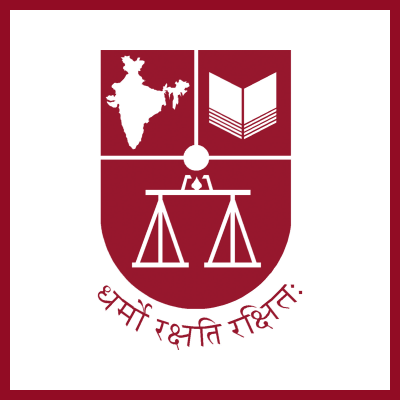Postgraduate Diploma inChild Rights Law(PGDCRL)
Overview
The Postgraduate Diploma in Child Rights Law (PGDCRL) is a specialized programme designed to equip participants with an understanding of the evolving field of child rights law. The programme offered since 2008 draws from the extensive knowledge and expertise accumulated by the Centre for Child and the Law, a multi-disciplinary research centre at NLSIU established in 1996. This programme will provide participants with a comprehensive understanding of both global and national perspectives on Child Rights. It will place significant emphasis on establishing the theoretical foundations of the concepts of ‘child’ while contextualizing child rights and child protection within the broader context of human rights and the regulatory framework in India. Moreover, the programme will introduce participants to the diverse array of national laws, policies and programmes governing survival and development rights of children and child protection laws in India.
Learning Objectives:
Through a carefully curated curriculum, participants will explore a wide range of topics related to child rights, child development and child protection including:
- Theoretical Foundations: Understanding the philosophical, ethical, and historical underpinnings of child rights.
- International Frameworks: Exploring key international conventions and treaties related to child rights.
- National Legal Frameworks: Analyzing the legal provisions and policies governing child rights.
- Health, Education, and Development: Investigating the rights to health, education, and development, and their legal implications.
- Child Protection: Examining critical issues such as child abuse, child trafficking, child labor, and juvenile justice systems.
- Interdisciplinary Approach: Understand the importance of multidisciplinary and interdisciplinary approaches to child rights, drawing from fields such as psychology, sociology, and education.
- Advocacy and Implementation: Learning how to advocate for child rights and translate legal principles into practical actions.
Learning Outcomes:
- Develop familiarity with the theoretical foundation of child rights, child development and protection laws in India and gain insight into their practical implementation.
- Acquire the capability to establish connections and interlinkages between various child development and child protection laws.
- Demonstrate awareness of the critical debates and areas of contention within the domains of child rights, child development and child protection.
- Become acquainted with the administrative framework governing child protection at both the state and national levels.
Course Structure
Participants taking this programme will study four papers. Paper I will introduce students to legal thinking and reasoning, and to legal systems with a particular focus on Indian laws and the Indian regulatory framework. Papers II – IV will cover specific aspects of child rights policy and law, survival and development rights of children and rights of children to care and protection.
Courses
Course 1: Introduction to Law & Legal Systems
This paper introduces the student to legal thinking and reasoning, and to legal systems, with a particular focus on Indian law and the Indian legal system. Those students who are from a non-law background would find this course particularly helpful.
Course 2: Child Rights, Policy and Law: International and National Framework
This paper consists of the following modules:
Module 1: Children in India: A Profile
- Age and Gender
- Rural and Urban divide
- Child Sex Ratio
- Issues and Challenges Faced by Children in India
Module 2: Understanding Child Rights
- Who is a Child?
- Notion of Human Rights and Child Rights
- Philosophical issues on Child Rights
- Some key concepts pertaining to Child Rights
- Role of State, Parents and Children within a rights framework
Module 3 : International Law pertaining to Children
- Introduction
- History of Child Rights and United Nations Convention on Rights of Child (UNCRC)
- Monitoring of Child Rights
- Optional Protocols to UNCRC and other International Treaties related to children
- Other International Treaties
Module 4: A Children’s-rights based approach
- Introduction to the Rights Based Approach and implications for work with children
- Core and General Principles of the Rights Based Approach
- Children’s right to be heard and the Rights Based Approach
- Application of the Rights Based Approach while engaging with children
Module 5: Constitutional safeguards for children
- Constitutional rights of children
- Landmark constitutional cases related to children
Module 6: National Policies and Plans of Action
- Introduction
- National Policy for Children, 1974
- National Plan of Action for Children (NPAC), 1992 and 2005
- National Policy for Children, 2013
- National Plan of Action for Children (NPAC), 2016
- National Policy for Early Childhood Care and Education, 2013
- National Education Policy, 2020
Module 7 : Parastatal Institutions and Commissions for Children
- National Commission for Protection of Child Rights (NCPCR)
- State Commissions for Protection of Child Rights (SCPCR)
- Human Rights Institutions for children
- National and State Human Rights Commissions
- National Commission for Women (NCW)
- State Food Commissions
Module 8 : Multi-Disciplinary Approach to Child Rights
- The Multi-Disciplinary Approach and its value in enabling effective engagement with matters concerning children and their rights
- Opportunities for Multidisciplinary work with children in India
- Ethical dilemmas and challenges faced while engaging with the multidisciplinary approach
- Moving from Multidisciplinarity towards Interdisciplinarity
Course 3: Survival and Development Rights of Children
This paper consists of the following modules:
Module 1: Policies, Programmes and Legislations on food and nutrition
- What is Right to Food-A conceptual understanding
- Right to Food and Nutrition in India: A Situational Analysis
- International Legal Framework governing Food and Nutrition
- Constitutional Provisions and milestone case laws on right to food
- Policies and programmes on Right to Food and Nutrition in India
- A critical analysis of the National Food Security Act, 2013
- Contemporary issues in the context of Food Security (Including climate change, fortification, digitization, food safety, etc)
Module 2: Policies, Programmes and Legislation on Right to Education
- Right to Education-A conceptual understanding
- Normative Framework for Right to Education
- Constitutional Provisions and milestone case laws on right to education
- A critical analysis of the Right of Children to Free and Compulsory Education Act
- New Education Policy- A critical perspective
- Emerging issues and challenges
- Child rights issues-Intersectionality and overlapping issues
Module 3: Policies, Programmes and legislation on Right to Health
- Right to Health-A conceptual understanding
- Right to Health in India-A situational analysis
- International and Domestic Legal Frameworks governing Right to Health
- Policy and programmatic landscape of Right to Health
- Contemporary Issues in the Right to Health landscape of India-Case studies
Course 4: Rights of children to care and protection
This paper consists of the following modules:
Module 1: Regulatory Framework on Children’s Right to Care and Protection
- International Framework and Domestic Framework
- Juvenile Justice Act in the context of care and protection
- Integrated Child Protection Scheme
- General Principles of Care and Protection
- The judicial stance on Children in need of Care and Protection
Module 2: Child in need of Care and Protection
- Child in need of Care and Protection : A holistic understanding
- Child Welfare Committee – Role, Powers and Functions
- Procedure in relation to CNCP
- Child in conflict with law as child in need of care and protection
- Interventions of the CWC:
– Orders passed by the CWC for children in need of care and protection
– Institutional intervention
-Non-institutional interventions and rehabilitation approach for child protection
- Functioning of CWC – Review and Grievance Redressal
Module 3: Child Sexual Abuse
- Understanding Child Abuse
- Understanding Child Sexual Abuse
- Domestic framework on Child Abuse
- Domestic Framework on Child Sexual Abuse – Protection of Children from Sexual Offences Act, 2012
Module 4 : Law relating to Child Trafficking
- Legal framework related to child trafficking
- Institutions dealing with child trafficking cases
- Landmark judicial decision on Child Trafficking
- Anti-trafficking policies and programmes
- Issues and challenges in addressing child trafficking
Module 5 : Law relating to Child Marriage
- What is Child Marriage?
– Prevalence, causes and consequences of Child Marriage
- International Legal Framework on Child Marriage:
- National Legal Framework governing Child Marriage
– Prohibition of Child Marriage Act, 2006 (PCMA)
– Other Legislation
- Landmark judicial decisions on Child Marriage
- Issues and Challenges in eliminating Child Marriage
Module 6 : Law relating to Child Labour
- Understanding Child Labour
- International Framework on Child Labour
- Legal framework on Child Labour
- Landmark judicial decisions on Child Labour
- Issues and challenges in addressing child labour
Module 7 : Law relating to Children in Conflict with the Law
- Understanding Children in Conflict with the Law (CICL)
- International Framework
- Relevant Authorities for CICL
- Child Care Institutions for Children in Conflict with Law
- Juvenile Justice Boards – Powers, functions and responsibilities
- Procedures in relation to CICL
- Functions of Children’s Courts vis-à-vis CICL
Module 8: Restorative Justice
- What is restorative justice?
- International Legal Framework on Restorative Justice
- Restorative Justice Models and Practices
- Children in Conflict with Law and Restorative Justice
- Children in need of care and Protection and Restorative Justice
Faculty

Assistant Professor of Law

Assistant Professor of Law

Research Fellow
Fee
For Indian Nationals
| Regular Fees | |
| Application Fee | Rs. 2,000 |
| Admission Fee | Rs. 3,000 |
| Course Fee | Rs. 24,800 |
| Examination Fee | Rs. 3,200 |
| Total fees | Rs. 33,000 |
| Other fees | |
| Admission late fee | Rs. 500 |
| Continuation fee | Rs. 3,500 per year |
| Extension fee | Rs. 6,000 per year |
| Re-evaluation fees | Rs. 900 per paper |
For Foreign Nationals
| Regular fees | |
| Application Fee | Rs. 2,000 |
| Admission Fee | Rs. 3,000 |
| Course Fee | Rs. 74,500 |
| Examination Fee | Rs. 3,200 |
| Total fees | Rs. 82,700 |
Apply
Please note the following information regarding eligibility and the mode of applying for this programme.
Eligibility
The minimum eligibility for applying for this programme is a graduate degree (in law or other fields) from a recognized university.
Students with a degree certificate or its equivalent from any UGC-recognized university, Association of Indian Universities, CA, CS, ICWA, Open University/distance learning can apply. There shall be no restriction as to age, nationality, gender or employment status.
Important Dates
Admission Closed
Classes are slated to begin in September 2025
For admission-related queries, please write to admissions.pace@nls.ac.in
FAQs
These are some commonly asked questions about this programme. For general questions about the NLSIU Distance Progamme, please visit the General FAQs page.
How many years does a student have to complete a programme?
Students of the Diploma programmes can complete their programme in up to five years from the year of their enrolment.
Students are required to pay the prescribed fee at the time of admission. If a student has to continue the programme beyond one academic year because of non-fulfilment of the prescribed requirements for the award of the diploma, they will be permitted to continue for the subsequent two academic years by paying a continuation fee as prescribed for each year.
After a period of 3 years if the student is unable to clear the programme they may be given an extension of another 2 years by paying Rs. 5000 per year for the subsequent two years as extension fee, provided they have cleared 2 out of the 4 courses in a Diploma programme. At the end of the fifth academic year, if the student is unable to complete the requirements for the award of the diploma, the admission stands automatically cancelled.
What if the candidate does not complete the course in 3 years?
If the candidate does not pass or complete the course, his enrollment ceases. He will have to register afresh by following the usual procedures prescribed for first admission. His performance at the earlier exams is not carried forward. He will have to redo the entire academic exercise prescribed, in the syllabus.
What is the scheme of Assessment?
Every course shall have a combination of formative and summative assessments. This will aid in regular learning and understanding concepts better. Please note the following details regarding the upcoming assessments: Assessment Details:
| Sl. No | Assessment Type | Assessment Pattern | Marks Allotment | Mode | Enrollment Fee |
| 1. | Formative I | MCQs | 20 Marks | Online | INR. 200/- |
| 2. | Formative II | MCQs | 30 Marks | Online | INR. 200/- |
| 3. | Summative | Subjective | 50 Marks | In-person | INR. 300/- |
What is Grading Mechanism?
To successfully complete a programme, a student must take all three assessments (Formative I + Formative II + Summative) and obtain a cumulative grade point average (CGPA) of three and above out of seven. An aggregate of your performance will count towards the final grade in each course.
| Grade | Grade Description | Grade Point | Percentage of Marks |
| O | Meets the highest standards for the assignment or course | 7 | 70% and above |
| A+ | Meets very high standards for the assignment of course | 6 | 65% to 69% |
| A | Meets high standards for the assignment or course | 5 | 60% to 64% |
| B+ | Meets most of standards for the assignment or course | 4 | 55% to 59% |
| B | Meets basic standards for the assignment or course | 3 | 50% to 54% |
| C+ | While acceptable, falls short of meeting basic standards in several ways | 2 | 45% to 49% |
| C | Lowest passing grade | 1 | 40% to 44% |
| F | Failing, very poor performance | 0 | Less than 40% |

Admission Status
CLOSED
Duration
1 Year
Number of Courses
4
Course Fee (Indian Nationals)
Rs. 33,000/-
Course Fee (Foreign Nationals)
Rs. 82,700/-
